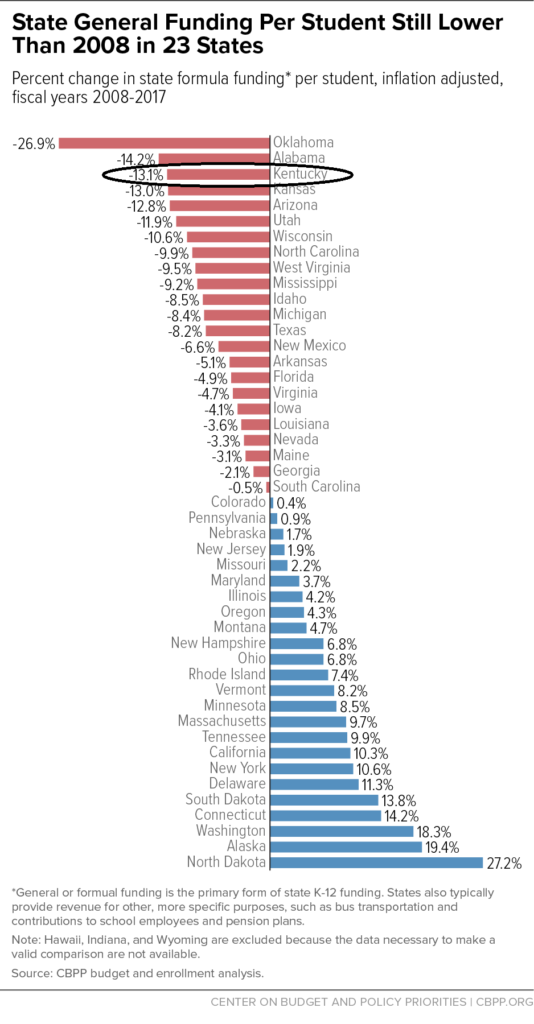An amended version of House Bill 520 passed the Senate Education committee this morning and is now heading to the Senate floor. The changes made to the bill were relatively minor and the concerns we expressed previously still apply.
The changes made to the version of HB 520 that passed the Senate include clarification around definitions (for instance, which mayors can be authorizers); when a traditional public school can convert to a charter; teacher qualifications; and the lottery process that occurs when more students are interested in attending a charter than the school can serve.
However, the big funding and accountability concerns we raised previously still apply to the somewhat revised version of the bill:
- There are no details about how the charter schools would be funded. Even the details about transportation funding that were included in the previous version were omitted. It is unclear whether or not a separate bill addressing charter funding will be introduced later today.
- The mayors of Louisville and Lexington can still be authorizers even though their missions do not extend to education in Kentucky.
- The diversion of scarce public school funding to charter schools would still negatively impact existing public schools.
- There would still be inefficiency created by the increased bureaucracy of adding another school with a separate operating structure within the existing system.
In addition, the bill would continue to allow for-profit (often out-of-state) charter education service providers to gain from Kentucky’s scarce public education dollars.
Our state needs greater investment in our existing public schools — not a new policy that diverts scarce resources away from them with a lack of evidence for better overall performance. Despite some claims to the contrary, per-student funding for K-12 education has declined considerably in recent years.





